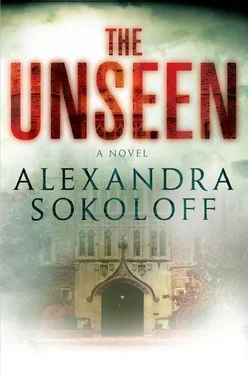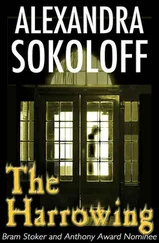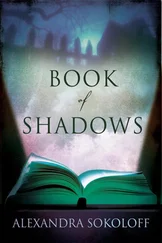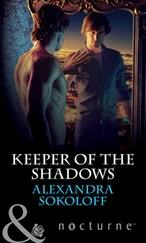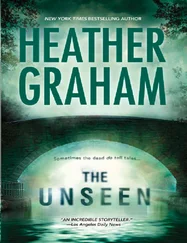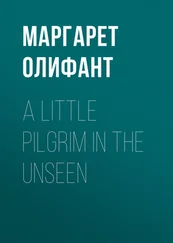As the associate started for her, she quickly stepped up to the nearest cluster of colleagues, nodding and smiling as if she were completely absorbed in the conversation.
But no one in the circle acknowledged her, and the topic of conversation was being ominously uniform.
“—just got the Peabody grant…”
“—proposals due on the nineteenth…”
“—book comes out from Macmillan in the fall…”
There seemed not a single faculty member in the group, or in the room, who was not talking about his or her most recent publication or pending grant proposals. Laurel shifted on her feet, her smile dying by the second. She knew her position at Duke was contingent on publication or the bringing in of grant money—preferably both. That stipulation had been clearly spelled out in both her qualifying interviews and her contract.
The “publish or perish” aspect of university careers was not new to her; she’d grown up seeing her professor mother slaving over articles after a full day of lecturing. The truth was, even though Laurel had faked her way through the Duke interview with what she knew sounded like an impressive overview of her research and publication plans, a series of interconnected articles on Myers-Briggs personality types and test scores as a factor in choosing professions, she’d had not the slightest hint of passion for the project since—
Since Matt. Since the dream.
How can I write anything about personality and the self when I have no self left?
Laurel murmured “Excuse me” to the circle, and edged herself out of the group. She paused by another table of appetizers with her stomach churning in anxiety, and again scanned the room full of her colleagues, looking for a remotely friendly face.
A ripple of feminine laughter drifted from across the room and Laurel turned to look. Beside the grand piano, a dynamic, dark-haired man in his early thirties, with broad shoulders and crackling blue-gray eyes and a dusting of Irish-looking freckles over his handsome and lively face, was surrounded by young female grad students, all hanging on his every word.
Laurel’s face shadowed. Shades of Matt. Definitely the last thing I need. She looked quickly away from him.
She reached for an appetizer—some kind of chicken sate—just to look busy. Relax, she ordered herself. She glanced around the room and started a categorizing game to calm herself—classifying the people around her according to Myers-Briggs basic personality factors. The good-looking professor was definitely an ESFP (Extravert, Sensing, Feeling, Perceiving), a combination of qualities that inevitably resulted in more charm than was good for anyone. The hostile woman in the baggy suit: ENTJ, the self-proclaimed judge. And that bearded man holding court by the fireplace—
Laurel started as she recognized Dr. Unger, the department chair, whom, of course, she’d met during her interviews. Like most psychology department chairs he had a hint of Freud about him, even though Duke’s academic reputation leaned toward neuroscience. Laurel swallowed the last bite of chicken, took a breath, and forced herself to go up and say hello.
“Laurel MacDonald,” she prompted the chair, as he turned toward her with a quizzical look.
“Of course, Dr. MacDonald,” he said smoothly, and she started slightly at the “Doctor.” He grandly managed not to sneak a look at her legs.
Laurel smiled what she hoped was a competent and professorial smile. “I just wanted to say thanks for the welcome and the party. It’s so nice to meet everyone all at once,” she lied.
Dr. Unger gave her a complacent and toothy smile back. “Yes, we want the faculty to know each other. The department encourages interdisciplinary collaboration, particularly on grant projects, so don’t be shy about approaching anyone with ideas. We’re on the books to discuss your proposal, aren’t we?”
Laurel’s heart skipped a beat. Had she missed something? It occurred to her that she hadn’t checked her phone messages for probably a week now—but she couldn’t exactly ask him the date of their appointment. Instead she stammered, “I’m looking forward to it.”
“Excellent,” Unger said heartily. “Your aunt has been a credit to the university. We expect great things from you as well.”
Laurel blinked and had to scramble to remember what he was talking about. My aunt?
“Your Aunt Margaret?” Unger prompted her, frowning.
Aunt Margaret. Yes. Right.
Laurel had only met her Aunt Margaret twice, both times when she was little more than a toddler, had not seen her since she’d arrived in Durham. The truth was, when Laurel had called to accept the Duke position she had not remembered the North Carolina family connection at all, not until she’d called her mother at Stanford to announce her decision.
Meredith had gone completely silent—in fact, the silence had gone on and on—until Laurel realized that she had for the first time in her entire thirty-one years succeeded in astonishing her dry and unflappable mother.
“North Carolina?” Meredith finally said, with an unaccustomed hint of Southern accent. And it had not been until that second that Laurel recalled that North Carolina was her mother’s home state—that even though she’d left right after high school, Meredith had grown up not half an hour from Duke, that her older brother and sister were Duke alumni, that Laurel’s Aunt Margaret was a celebrated professor on the medical school faculty.
To be fair, it was not a case of total amnesia on Laurel’s part. Meredith rarely mentioned her past. She’d left the South at seventeen, and headed for California, never to return for more than a few weekend visits.
And why was that, exactly? Laurel was just starting to wonder when a voice broke through her thoughts.
“Professor MacDonald?” The department chair was speaking to her, an edge in his voice. Laurel forced herself to focus and return to the party.
“Yes… thank you. I’ll certainly try to live up to that,” she said lamely.
Thankfully, there were others waiting behind her to pay homage and she stepped aside so the next supplicants could have their turn.
Laurel turned and very nearly collided with a bespectacled, somewhat unkempt little man hovering beside her. He gave her a shrewd look. “Hope your proposal is a knockout. Because he’s serious as a heart attack.” Laurel recognized the little man from the departmental Web site: J. Walter Kornbluth, the department’s acknowledged prodigy. At the age of thirty-two he’d already published two acclaimed popular psychology books on abnormal psychology, one of which, Head Cases, had been optioned for television.
It’s not enough to teach anymore, Laurel thought glumly. You need an agent and manager.
Kornbluth didn’t bother to introduce himself; he seemed to expect her to know him. “If you want a tip—forget about articles or grants, although bringing in some money doesn’t hurt. But these days anything less than a book doesn’t cut it.”
A book? Laurel thought. I can barely get dressed in the morning.
He continued smugly. “They dumped two associate profs last semester when they didn’t get the publishing deals they were angling for. No book deal, no grant money, no job.”
Kornbluth had taken out his Treo and was scrolling through his e-mail as he talked, a habit Laurel had found appalling in Los Angeles and which seemed to her even more pretentious at a faculty party.
She felt her hackles rising. “I can’t imagine that will be a problem. I’m excited about what I’m doing.”
“And what would that be?” The pompous little man peered at her over his horn-rims.
Читать дальше
